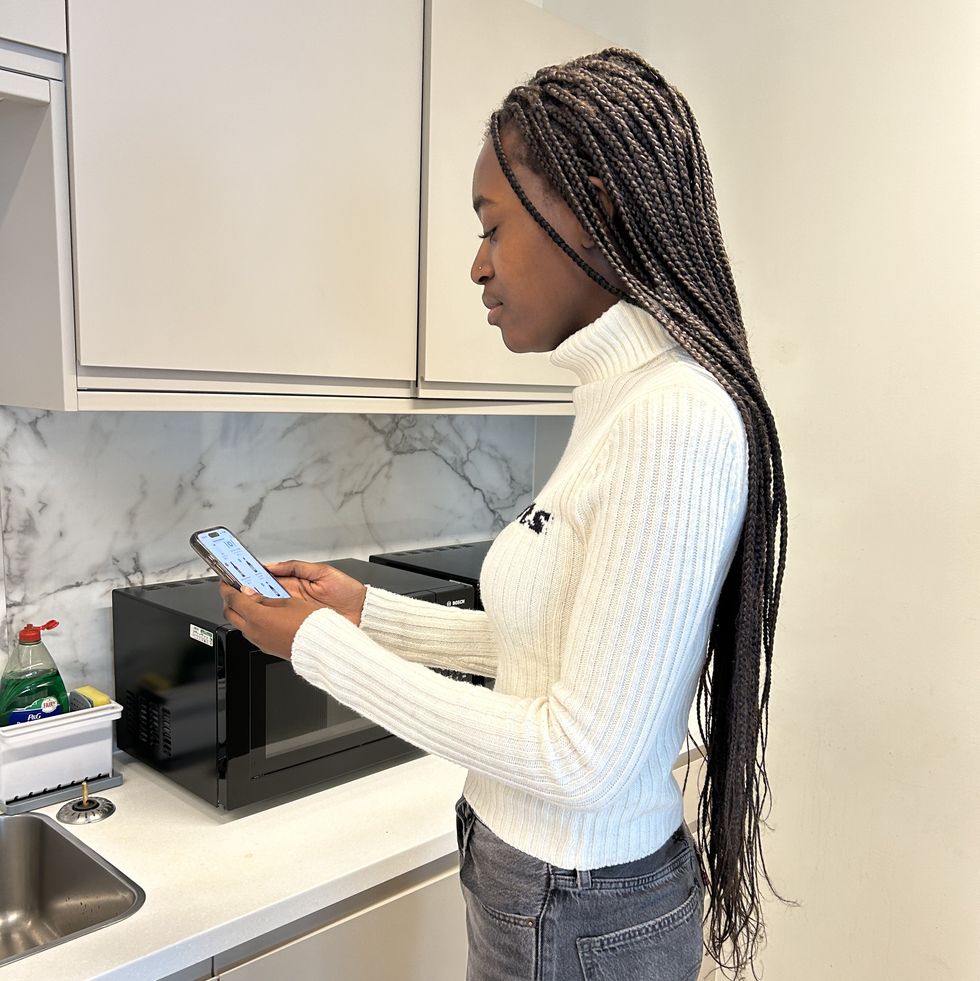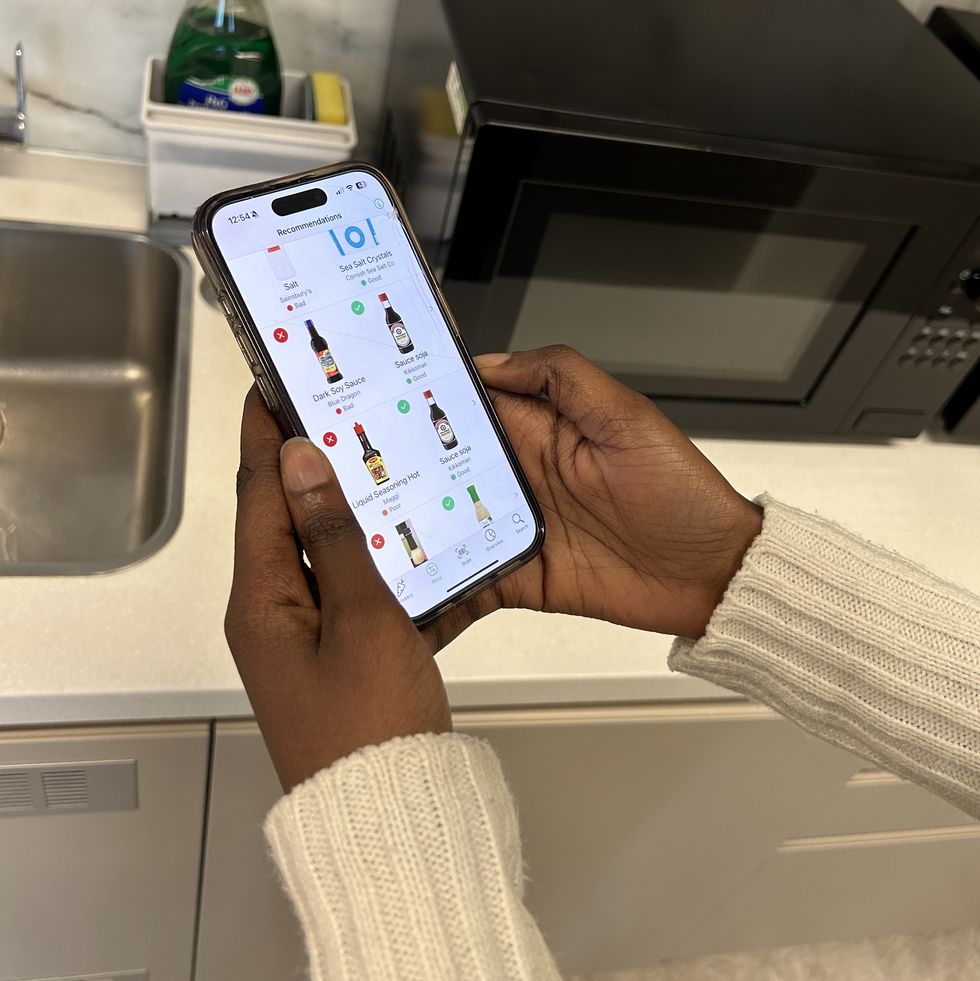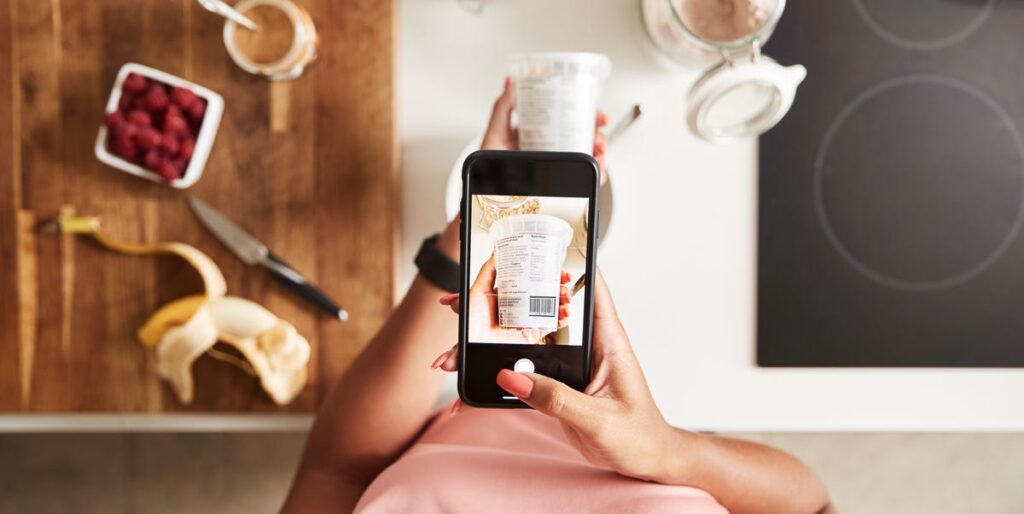I’m standing in my kitchen, phone in one hand, bottle of olive oil in the other. I tip it over slightly, so I can see the barcode, which I scan with my phone. The results appear on my Yuka app quickly, and, to my surprise, the olive oil receives an excellent score of 75/100.
‘Mum!’ I shout from the kitchen. ‘It says the olive oil is good.’
I start zapping various other barcodes in my kitchen. The tomato ketchup scores 39/100, and the honey and mustard dressing scores 36/100. Surprisingly, the soya milk – which I thought was healthy – scores a very low 49/100. This game is fun, I think.
So, what is Yuka?
On social media, everyone has been talking about the app, Yuka. And with 45 million users, it’s hardly surprising.
According to their website, Yuka is ‘an app that scans food and cosmetic products in order to know their impact on your health’. Created by three co-founders, Benoit Martin, François Martin and Julie Chapon in 2017, Yuka is an independent app – and receives no financing from any brand or manufacturer (so, no one can influence their analyses or recommendations).
How does Yuka work?
With just a scan of a barcode, Yuka breaks down the ‘good’ and the ‘bad’ of most household and cosmetic products, giving them a score out of 100. The idea is that by scanning the barcode, you’ll get a quick and easy overview of the health and environmental impacts of the product.
Yuka scores food based on its nutritional quality, the presence of additives and whether or not the product is organic. They also consider the number of calories, sugar, salt, saturated fats, protein and fibre in each product – taking into account independent studies.
10% of the score comes down to whether or not the products have an official seal from a national or international organisation to show they’re certified organic.
When the product receives a low score, the app offers alternative food or product recommendation that they say are are better for your health. For example, instead of ordinary table salt, Yuka recommended sea salt.
Where does Yuka get its data from?
Yuka has built its own database and, to date, contains over five million products. All the data comes from either app users – where users upload information themselves – or via brands – where brands email in their product data.
Related Story
Is Yuka trustworthy?
So far, the app sounds pretty great – an easy and accessible way to make better (and healthier) choices. But, does it work IRL? I decided to try Yuka for a week – and scan some of my staple products – to see if the app could help me make better food choices.

Nana tests out the Yuka app
For lunch, I decided to make a sandwich – scanning a bottle of vegan mayo, Yuka revealed a rather low score of 15/100. ‘Maybe I should throw it out?’ I thought. ‘Or eat my sandwich without it?’
For dinner, it was a simple sausage pasta dish. I scanned a bottle of bolognese pasta sauce, which came out with a better rating. 90/100 – great.
Scanning various food products started to feel like a fun game. It was interesting to see how some of the foods in my fridge scored, particularly if Yuka had declared them as ‘unhealthy’ – despite seeming healthy.
Related Story
Over the course of the week, I scanned almost every food item in my house – a can of evaporated milk, dark soy sauce, a packet of noodles – and even in such a short time of using Yuka, I became hyper-aware of everything I was eating and purchasing from the supermarket.

Suddenly, it felt like my food choices depended on what Yuka thought was best – yet separating food into rigid boxes of ‘good’ and ‘bad’ didn’t sit right.
‘Despite the benefits, reliance on food scanning apps may inadvertently foster a sense of anxiety or obsession with food, as individuals might become hyper-focused on every ingredient and its potential impact on their health,’ says Courtney Coe, a registered dietitian at WellTheory.
‘This heightened awareness could lead to orthorexic tendencies, wherein individuals develop an unhealthy preoccupation with consuming only “perfect” or “clean” foods, potentially resulting in disordered eating behaviours.’
Related Story
What about its accuracy?
‘Based on reviews, it seems fairly accurate, although full testing is needed to understand this,’ says registered dietitian Chrissy Arsenault.
Coe adds that Yuka seems accurate and reliable, but, as with all food scanning apps, there may be discrepancies. ‘This is why it is important to view them as a tool, and not the end all be all,’ she says.
‘The accuracy of food scanning apps can vary depending on factors such as database quality, update frequency, and user input. Users can cross-reference information when in doubt, as relying solely on these apps may not always guarantee precise data.’
Are apps like Yuka harmful?
‘Apps, like Yuka, often focus on highlighting potentially harmful ingredients or nutritional aspects of food, which could lead to heightened concerns or obsessions about eating perfectly or avoiding certain ingredients at all costs – a version of orthorexia,’ says Arsenault.
‘While food scanning apps offer valuable information, users should strive for a balanced approach to nutrition, recognising that occasional indulgences can be part of a healthy, abundant life,’ adds Coe.
If you, or anyone you know, is struggling with an eating disorder, contact Beat, the UK-based charity that hopes to end the pain and suffering caused by eating disorders.
T: 0808 801 0677
E: help@beateatingdisorders.org.uk, under-18s: fyp@beateatingdisorders.org.uk
WH Verdict
Yuka is best used as a guide, not the end-all for making food decisions. As Coe says: ‘Use these apps as a tool, not a rulebook. Remember that food scanning apps are meant to provide guidance and educational information, but they shouldn’t dictate every food choice you make.’
Like this article? SIGN UP TO OUR NEWSLETTER to receive your weekly dose of features.
A Guide to Better Nutrition
Related Stories
Source link

